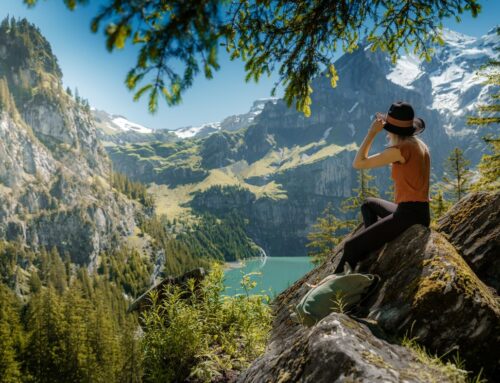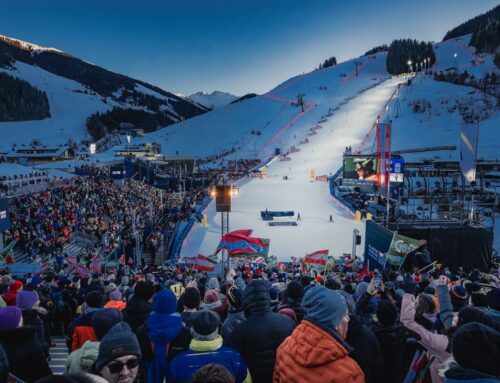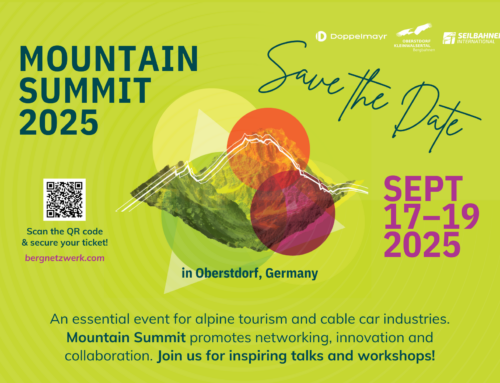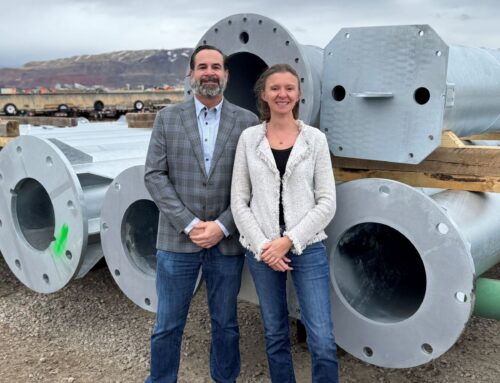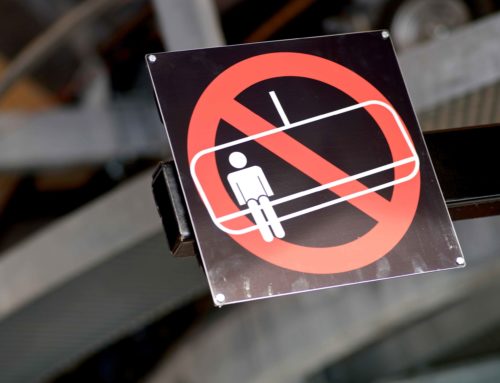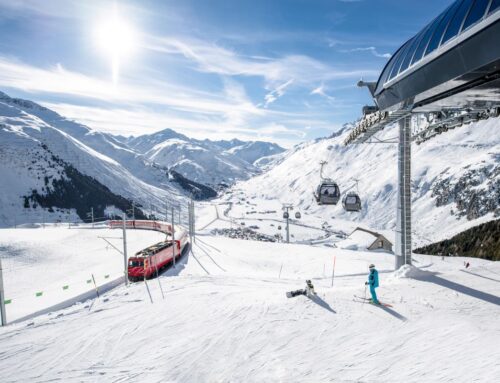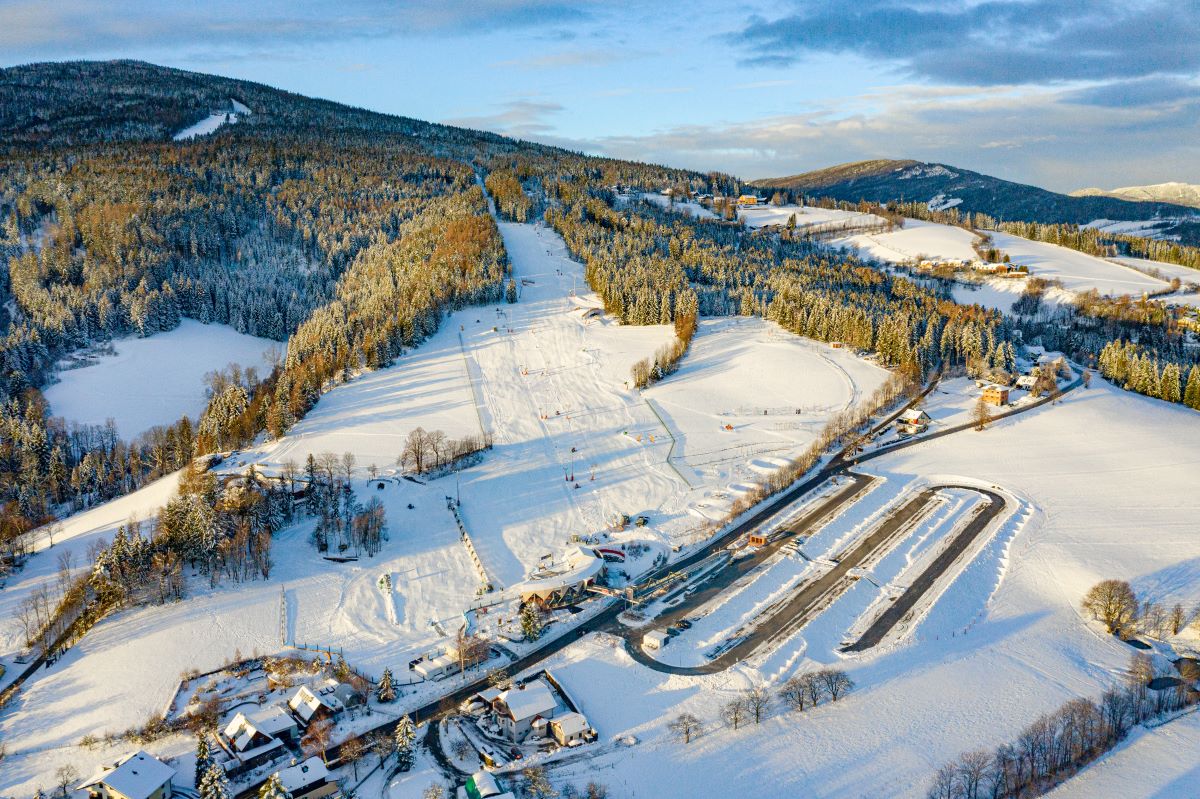
Management & Tourism, SI World 1/2023
Hybrid Destinations: Mixed culture instead of monoculture
Green ski slopes are fuelling the discussion about the eco- balance of ski resorts. Many places rely on snowmaking, but in St Corona in region of the Eastern Alps the summer toboggan run is opened as an alternative programme for guests.
Preparations are therefore already in progress with respect to climate change and operation with less or no snow. A number of other ski resorts in Austria are also opening their ski lifts for hikers and point to the resting options on the mountains. In consideration of the predicted climate evolution by 2030, green meadows alongside white piste strips could occur with increasing frequency.
The summer toboggan
run is a super alternative. Photo: St. Corona am Wechsel

Ski resorts will need to respond flexibly to the weather conditions in the future and offer alternative ski operations, as narrower pistes harbour a greater risk of accidents. Lower-lying ski resorts in particular need a backup plan.
One possibility is to regard themselves as year-round destinations and alongside skiing and ski touring to offer activities that are less dependent on the weather conditions – such as speeding down the slope on mountain bikes or downhill carts.
Markus Redl runs Ecoplus Alpin GmbH and talked to SI about how the future of winter sports might look in respect of a hybrid operation that runs all year round.
“Year-round operation is relevant for winter tourism from a strategic perspective. There are two reasons for this: to remain an attractive employer in the region, and to be able to maintain accommodation in the location in modern condition,” says Markus Redl, CEO of Ecoplus Alpin GmbH.
If there were less snow, smaller and medium-sized ski resorts may have to reduce their pistes if possible and offer an alternative programme for decreased ski operation – for example with laser biathlon and dog sled racing.
We can already see that guests are booking spontaneously and depending on the weather, and alternatives to classic winter tourism are needed, as guest behaviour has changed.
Fewer skiers in the population
Yet the main risk for winter sports lies less in climate- related factors and more in demographic development. Age groups that are currently more sparse would need to be balanced out by the older generation, but this means they would have to practise sports into old age.
Skiing remains one of the most popular winter sports in the DACH region, but the lack of younger participants could be contributing to diminishing interest in it: a survey of the population by the institute of leisure and tourism research shows that fewer and fewer people in the population are active skiers. The active skiers are getting older, and fewer young skiers are coming through.
There may be two reasons for this: the financial cost to families that a skiing holiday and skiing lessons entail, but also migrant backgrounds in which Alpine sport is not on the list of priorities. In particular, if the parental generation has not learnt to ski, it is less likely that the younger generation will have skiing lessons.
Fewer and fewer children
are learning to ski. Photo: Unsplash
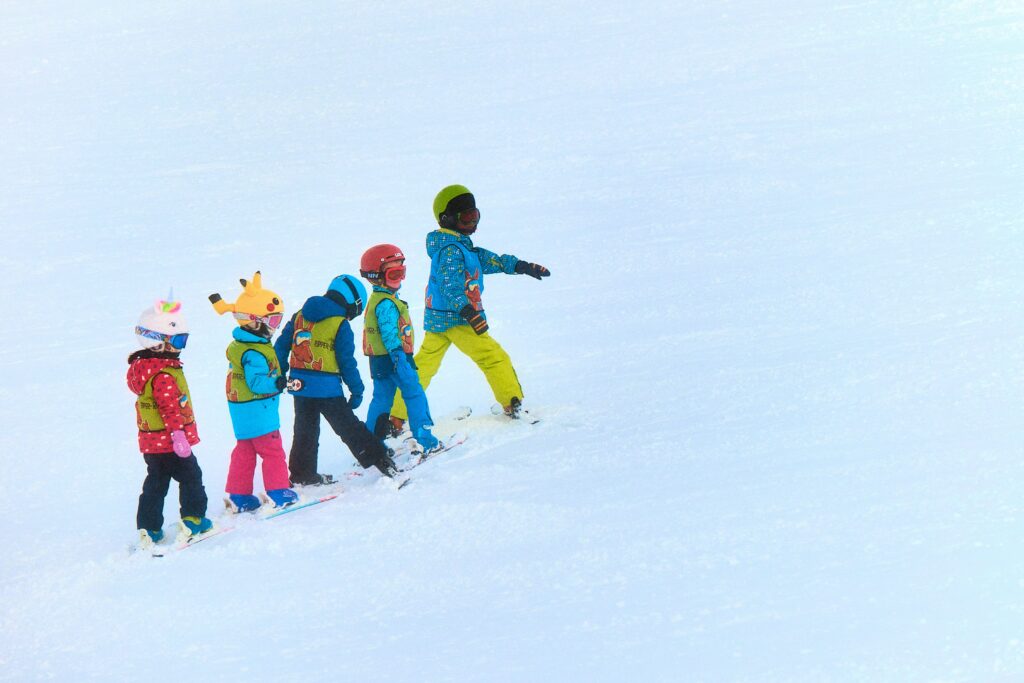
According to statistics from the institute of leisure and tourism research, the proportion of non-skiers in Austria is already at 63 percent; in the equivalent period in 1980 the proportion was lower, at around 40 percent. This is primarily an emotionally driven departure from the sport of skiing, for which the main reasons are lack of snow, increased prices and travel problems.
As well as a requirement for alternative provisions, there is an urgent need to revive interest in the sport of skiing and to support young skiers. A decline in skier numbers could have a significant impact on tourist business – elitism and declining interest in the sport of skiing are already noticeable.
However, above all, the much-cited departure from skiing will affect the winter leisure sport as a day trip option in smaller ski resorts near large cities. The economic importance of maintaining winter tourism / ski tourism should, nonetheless, not be ignored.
